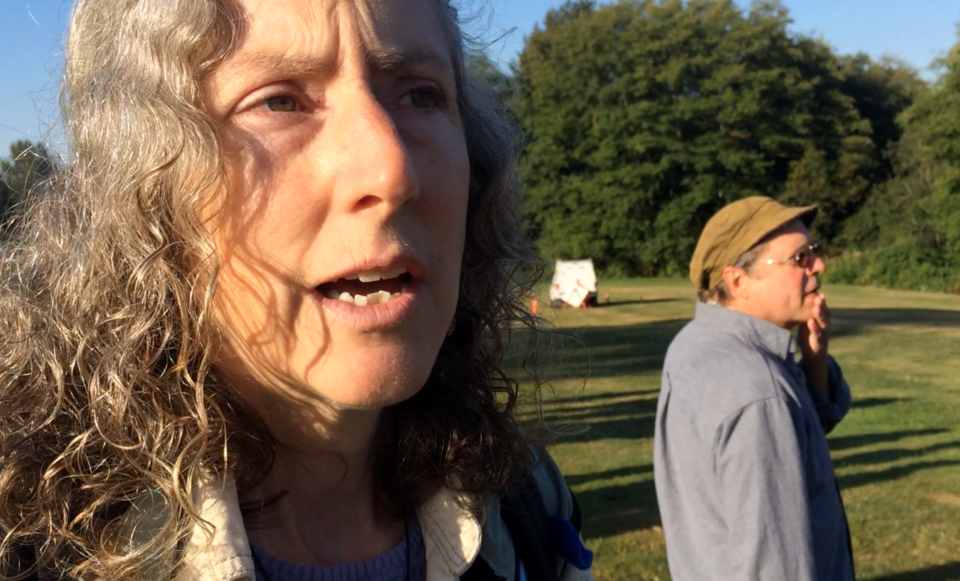A constitutional challenge from ForestEthics Advocacy involving three Burnaby residents and the National Energy Board has hit a wall at the Federal Court of Appeal, but the group plans to take the case to the next level.
The environmental organization is claiming the NEB is infringing on people's Charter rights by restricting public participation in the Kinder Morgan pipeline hearing and refusing to hear concerns related to climate change and oil-sands development. On Jan. 23, Justice Marc Nadon of the Federal Court of Appeal rejected the case.
"Honestly, I was not terribly surprised to hear that news," said Ruth Walmsley, one of the Burnaby residents named as an applicant in the case. "I was disappointed because I was hoping that the case would have an opportunity to be heard at that level, but we realized at the beginning that we may need to take it to a higher court."
ForestEthics Advocacy first took the legal challenge to the NEB last spring, which rejected the group's argument, stating freedom of speech does not necessarily mean anyone should be included in the pipeline hearing. The applicants then went to the Federal Court of Appeal in August, but the case was dismissed on Jan. 23.
Sven Biggs, a spokesperson with ForestEthics Advocacy was surprised by the court's rejection.
"I thought we had a really strong case, and it deserved the court's consideration," he said.
Now the group is plans to take the case to the Supreme Court of Canada. Most of the applicants have agreed to take the case further, but Biggs said there are still some who have not yet made up their minds about what to do next.
"We're not going to give up," said David Martin, the group's lawyer. "We believe the legislation is unconstitutional. It violates freedom of expression and it precludes the public from properly participating in the National Energy Board hearings."
Martin explained that the case is about challenging the NEB's new procedures, brought in after the Conservative government changed the NEB Act, narrowing the scope of participants in pipeline hearings to those who are "directly affected" by the project.
For example, if the pipeline runs through someone's backyard, that person would be considered directly affected, but the larger community as a whole is being excluded, Martin explained.
"These are complex legal formulations, but they boil down to that," he said. "God forbid we should hear from the community."
Besides ForestEthics Advocacy, there are eight people listed as applicants in the case. John Clarke, another Burnaby resident involved in the case, lives close to the Burnaby Mountain tank farm. He applied as an intervenor in the NEB hearing but was given commenter status, meaning he can only write a letter expressing his stance on the proposed expansion. Walmsley applied to participate as an intervenor in the NEB hearing but was rejected entirely. SFU professor Lynne Quarmby, who recently moved to Burnaby, is also one of the applicants in the case.
In regards to the original motion from ForestEthics Advocacy, NEB spokesperson, Sarah Kiley, explained that the board did not find the applicants had established that the NEB Act or the board itself were violating the Charter.
"That's why they decided to deny this motion," Kiley said. "The board made a comment I thought was interesting, ... 'the substantial interference with freedom of expression does not follow simply because the applicants have been denied their preferred means of expression.'"
Kiley also pointed out that the NEB doesn't create legislation; politicians and parliamentarians are responsible for the NEB Act.



